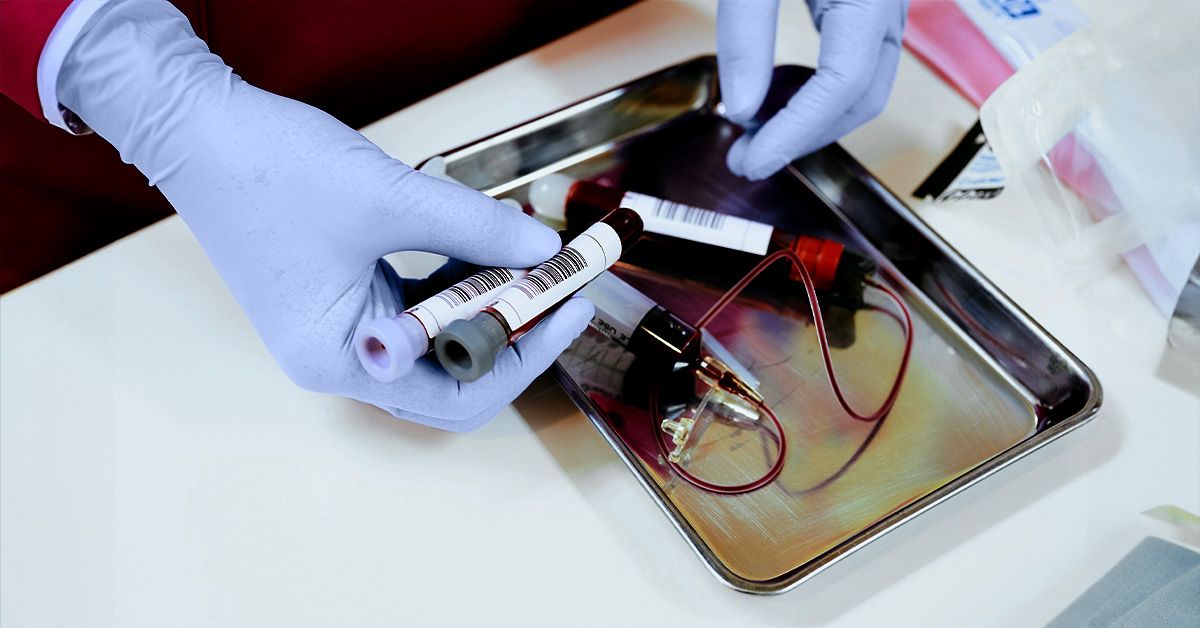- One in every three adults globally has high blood pressure, also known as hypertension.
- Every year, about 10 million people die due to the condition.
- Researchers from Queen Mary University of London in the United Kingdom say they have identified more than 100 new regions of the human genome and more than 2,000 independent genetic signals that appear to influence blood pressure.
- Scientists say these findings may help doctors better predict a person’s risk of developing high blood pressure.
Researchers estimate that
Every year, about 10 million people die worldwide due to this condition.
While certain unmodifiable risk factors, such as
Now, researchers from Queen Mary University of London in the United Kingdom say they have identified more than 100 new regions of the human genome and more than 2,000 independent genetic signals that appear to influence a person’s blood pressure.
Scientists of the new
For this study, researchers analyzed genetic data from more than 1 million individuals from the UK Biobank, the
At the study’s conclusion, scientists said they identified 113 novel regions of the human genome, also known as genomic loci. They also found more than 2,000 independent genetic signals for blood pressure across all loci, explained Helen Warren, PhD, a senior lecturer in statistical genetics at The William Harvey Research Institute at Queen Mary University of London and senior author of the study.
“Even though many genetic variants within the same ‘locus’ — a specifically defined region on a chromosome — will be similar, we have also found many examples of ‘loci,’ which contain multiple, independent, distinct ‘signals’,” Warren told Medical News Today.
“These are like different clusters of genetic variants within a ‘locus,’ but which are shown to be uncorrelated, so they are not similar to each other and the biological mechanism through which they influence blood pressure regulation may be different,” she explained.
“As our study shows, blood pressure is influenced by thousands of different genetic signals, so there are many different biological pathways which are involved in addition to non-genetic lifestyle and environmental risk factors, thus showing that blood pressure is a highly complex trait [that] still requires a greater understanding through research.”
– Helen Warren, PhD
Warren and her research team then took these new genetic findings and used them to calculate
“Blood pressure is a highly polygenic trait, meaning that it is influenced by thousands of different genetic variants, and each of these genetic variants will only have a small effect on increasing or decreasing blood pressure levels,” Warren explained.
“However, if we combine all the effects of all associated genetic variants into one single aggregated risk score, adding up the effects across all variants over the whole genome, which we call a polygenic risk score, this explains much larger effects on blood pressure,” she added.
“So a polygenic risk score essentially gives each of us a score, according to how many risk variants we carry,” Warren continued. “Knowing someone’s genetic risk score would enable a doctor to know if the patient was in the high genetic risk group.”
By using polygenic risk scores, scientists said they found that study participants with the highest genetic risk for hypertension have mean systolic blood pressure levels that are about 17 millimeters of mercury (mmHg) higher than those with the lowest genetic risk.
The highest genetic risk group also has a seven-times likelihood of developing high blood pressure compared to those with the lowest genetic risk.
With more knowledge about how genetics impact a person’s blood pressure, researchers believe this will help improve polygenic risk scores and ultimately help predict those at risk of high blood pressure in the future.
“High blood pressure is known as the ‘silent killer’,” Warren said. “Hypertension is highly common in adults from middle age onward, but many people don’t even know they have high blood pressure, so they aren’t treated with
“A huge benefit in knowing our genetic risk is that our genes are fixed at birth, so our genetic risk score is the same fixed value throughout our life,” she emphasized.
“Therefore, if we calculated people’s genetic risk scores earlier in life before we are middle-aged when other lifestyle risks tend to increase with age, then doctors would be able to target patients at higher genetic risk and monitor them more closely or recommend earlier lifestyle or therapeutic interventions to help reduce their blood pressure before their higher blood pressure may begin to impact their health and hence reduce their risks of future cardiovascular disease,” she added.
Medical News Today also spoke with Dr. Cheng-Han Chen, an interventional cardiologist and medical director of the Structural Heart Program at MemorialCare Saddleback Medical Center in California.
Chen, who was not involved in this research, commented that in the past few years, these types of genome-wide association studies have proven to be powerful in identifying genetic markers associated with many forms of hypertension.
“Hopefully, this study will help us in clinical medicine to [be] better able to treat our patients at risk for high blood pressure,” he said.
“We would consider these to be first steps in coming up with new diagnostic and treatment modalities for a patient with high blood pressure. This would first help us in identifying patients at risk for developing high blood pressure and severe high blood pressure. And hopefully, over time, can lead to new medications and treatments for these patients.”
– Dr. Cheng-Han Chen
Chen said it would be a “terrific goal” if these study findings helped design future prevention strategies for hypertension.
“We know a lot of the risk factors for people developing high blood pressure, but clearly we do not know all of them as hypertension continues to be a big problem,” he explained. “So this is another technology to help us better identify those patients at risk for developing high blood pressure in the future.”
Read the full article here













